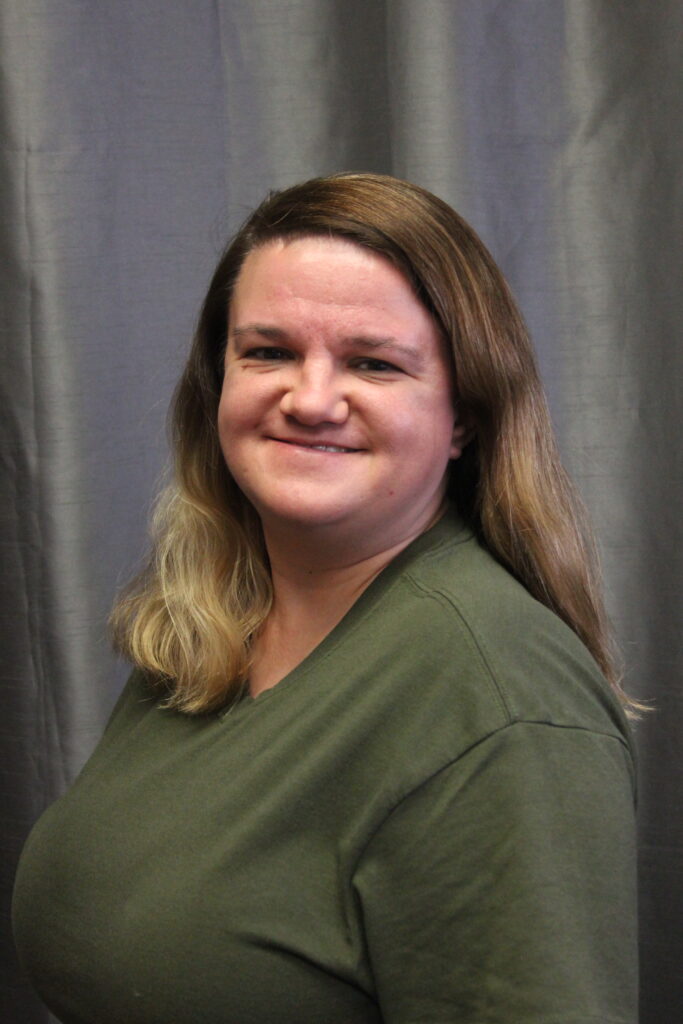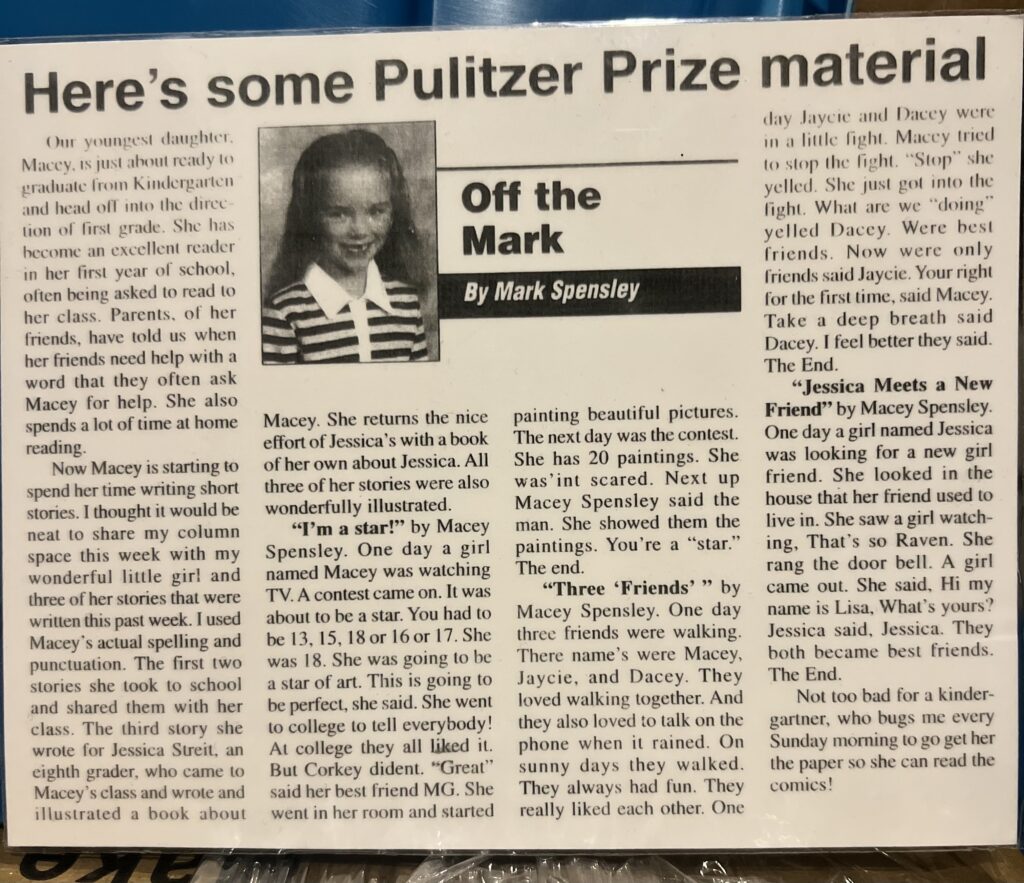BY MACEY SHOFROTH, FEARLESS STAFF WRITER
I grew up in a family whose business was, for decades, newspapers.
So it was only natural that as I developed a penchant for writing, people would constantly ask if I planned on taking over after my parents retired.
My answer was short and sweet: “Absolutely not.”
But while owning the rural weekly newspaper, the Monticello Express, didn’t exactly fit into my plans, it did give me a great jumping-off point for a career in writing. My first publishing credits were short stories I wrote at age 6 that my dad put in his column. My grandpa, the previous publisher, taught me to back up my thoughts with both facts and conviction when he was the first person to disagree with something I wrote. (All with love, of course.)

And I found my first female writing mentor in longtime Express editor Kim Brooks.
When Kim and I connected via FaceTime recently, she had just celebrated 15 years at the eastern Iowa paper.
“It feels crazy. I had only one other job before I came here,” she told me.
It feels crazy to me, too. I was 12 years old when my parents hired Kim, but it feels like I’ve known her my entire life. She even had to give me the names of the editors before her, as they’d long faded from my memory.
That lapse is indicative of the impact Kim had on both me, and the town. From the moment she stepped into that old brick building, she was more than just the editor — she was a committed member of the community who wanted to see Monticello thrive.
“Your dad has said that they hadn’t had an editor that got involved in their community,” Kim said.
That involvement includes 12 years on the board of directors for the Monticello Public Library, six years on the Monticello Chamber of Commerce board, six years on the executive board of Jones County Grade Level Reading and four years with the Jones County Young Professionals.
She has also joined the recent Jones County Migrant Inclusion Team, an organization founded to support immigrants in the area.
Even as a busy adolescent, I sensed that Kim’s involvement in our community was something special. I heard about her work as I bopped in and out of the Express to talk to my parents, or at home as we wondered: How does she have the time?
It’s just in her nature, both as a person and as a newspaper professional.
“I feel I need to know what’s going on in general. If I’m on a board with someone, they might be on a different board as well, and he can bring their ideas to me and I can share those in the newspapers,” Kim said.
That network is important for any journalist, but it becomes vital for a newspaper like the Express. Kim is one of two editorial employees attempting to cover as much news as possible in Jones County, which has a population of 20,848. Their subscriber base has grown recently, as another local weekly newspaper changed ownership and readers have shifted.
This is even after the Express changed ownership itself. Kim and Pete, the Express associate editor, have maintained high-quality reporting to keep the town informed.
I didn’t always appreciate the importance of that kind of rural Iowa journalism as a kid — the type of reporting that often seems pretty “small potatoes” when you aren’t directly affected by the work. But for issues like an upcoming school bond issue, it’s imperative. The bond would fund a new elementary school to replace the current one, at which my mom attended kindergarten and still doesn’t have air conditioning.
Kim and the newspaper are keeping readers in the town abreast of how their money is being used, and how it could affect their children’s futures.
“If we’re not reporting on [the city council], people don’t know what’s going on in their town,” Kim said. “One of our big headlines next week is about garbage rates going up. Probably in the grand scheme of things, that’s not big news. But in a small town, when people are watching their pennies, garbage rates increasing is a big deal. Would the community, other than the two people who were at that meeting, know about it if I hadn’t put it in the paper?”
At the beginning of her career, Kim thought she might head to a bigger city like Chicago after her tenure at the Express, maybe try working at a magazine. Fifteen years later, she’s glad she stayed in small-town journalism.
She’s been able to connect deeply with the community she’s serving. The owners of a wine bar that opened in Monticello in 2013 became two of her best friends after she interviewed them. She interviewed a couple after tragedy struck their family, and the wife became her colleague at the library years later.
“People I talked to once to share their story have ended up being a part of my life in some way,” she said.
There’s another layer to her work that turns Kim a bit bashful when I bring it up. Her mentorship as a female journalist and leader has touched many aspiring writers, including me. She guided me as I worked on the Express’s 150th edition as an intern, and the backend knowledge around how a publication comes together was invaluable.
Several others have benefited from Kim’s teaching, such as Wartburg graduate Riley Cole, who became the first female sports editor at Waverly Newspapers. All but two of Kim’s interns have been female.
She’s reluctant to claim her influence in the careers of young female journalists she’s mentored. But seeing firsthand her dedication to this rural Iowan town — my hometown — I have a better understanding of what it means to tell others’ stories with care.
Even when she had good reason to step away — after my family sold the paper recently, she wondered if it was a good time for her to try something new — she maintained her belief in the legacy, and future, of the Monticello Express.
“Like you said, a town can survive and revolve around the newspaper,” Kim said. “I can’t see myself not working that and having it go downhill. I’ve been here for so long. I don’t know if I can step away.”


